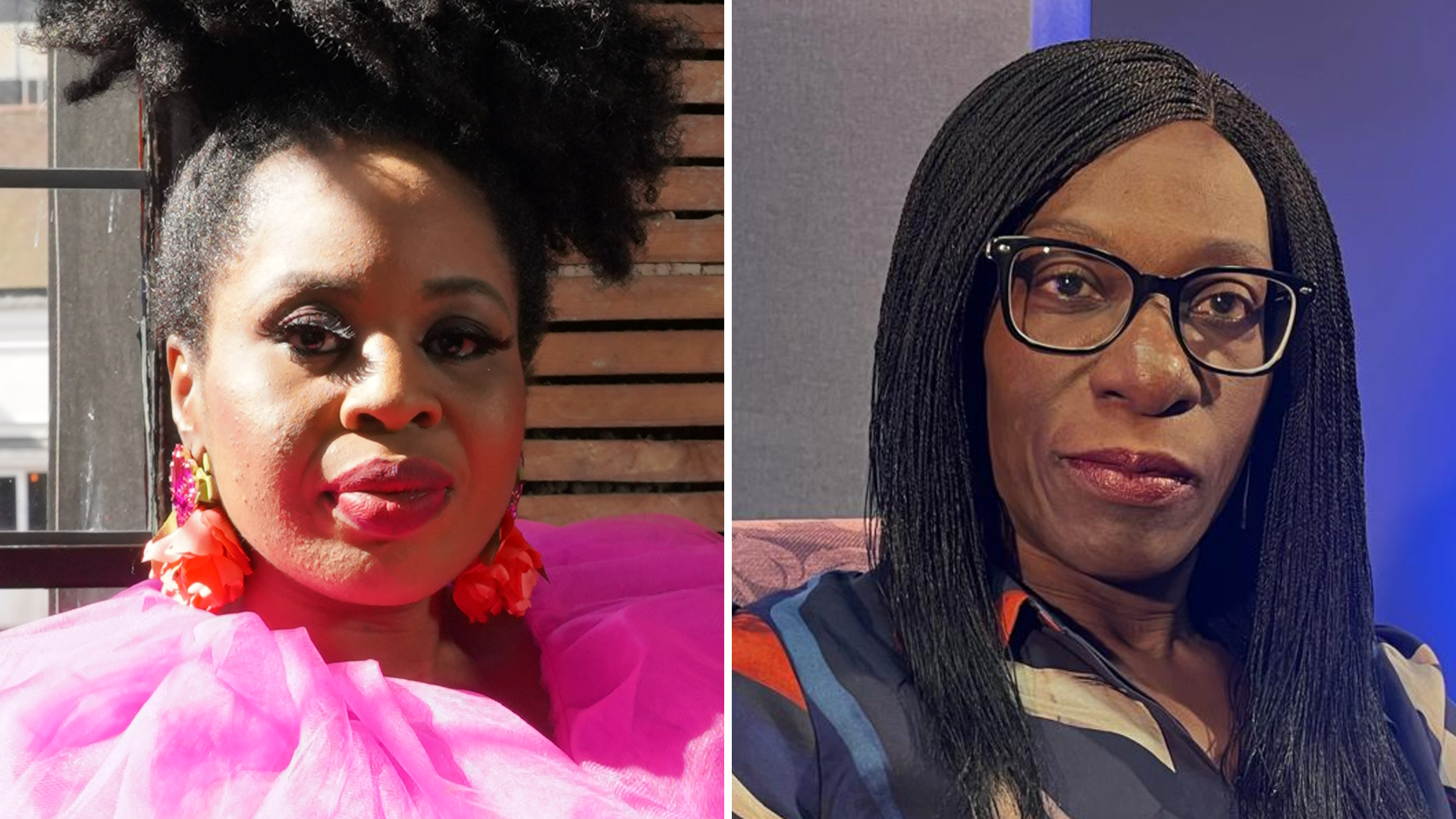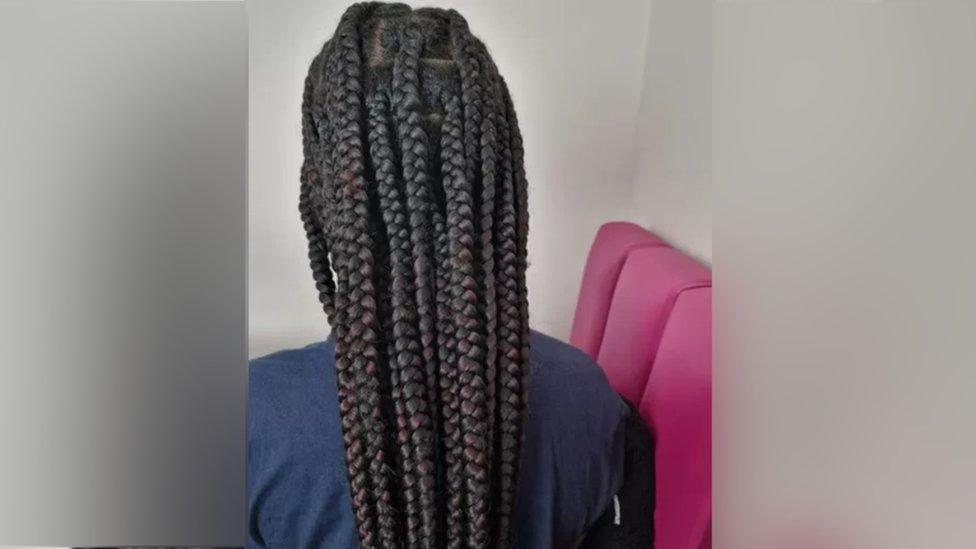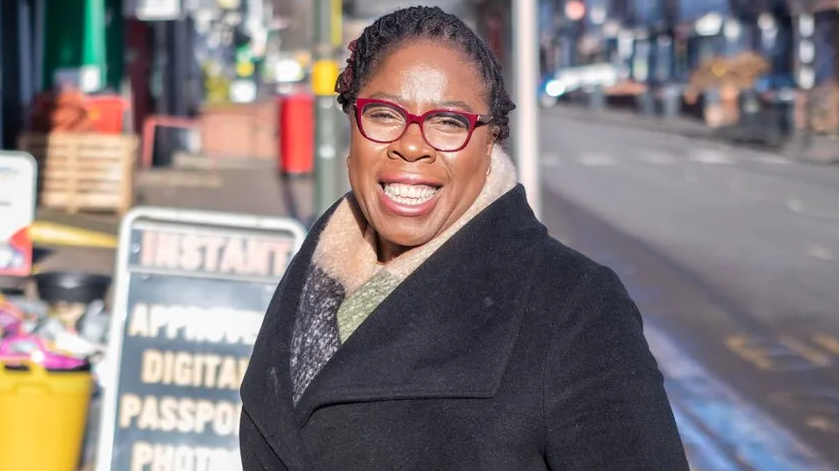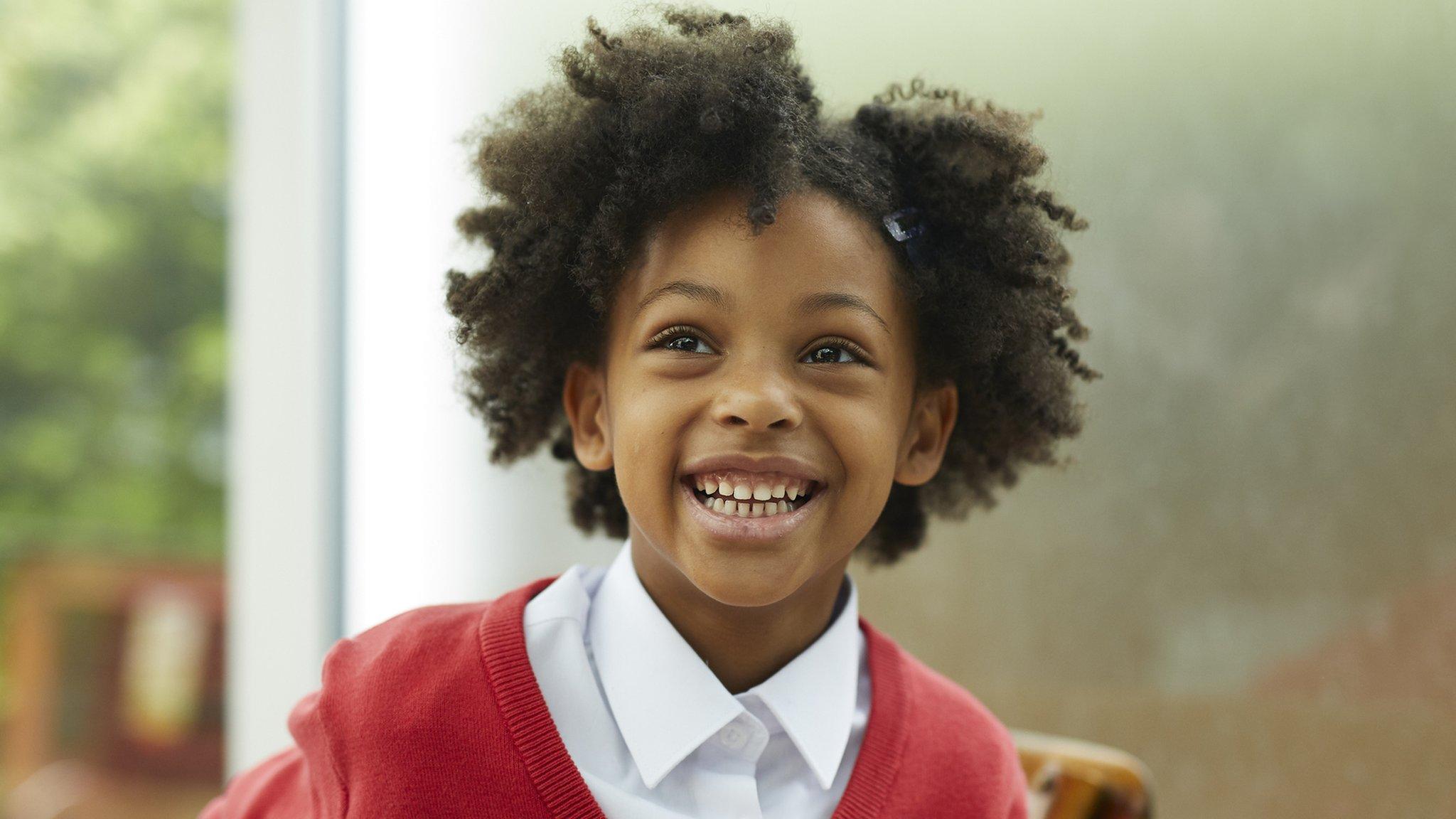'We're still treated unfairly because of our hair'

Salha Kaitesi said hair discrimination had gone on for "far too long"
- Published
Black and mixed-race women are calling for a new law to stop people touching their hair without consent and pressurising them to have western hairstyles.
Salha Kaitesi, who campaigns against inequality in the north-east of England and Cumbria, said hair discrimination had "destroyed" members of her community.
She said workers had been told by their employers that their afros, braids, dreadlocks or twists were "unprofessional or untidy" and that strangers touch their hair without permission.
The government said hairstyles worn because of cultural, family and social customs are part of people's ethnicity and are a protected characteristic of race under the Equality Act 2010.
Ms Kaitesi, who founded the community organisation Teakisi, is calling for the explicit inclusion of hair discrimination in the law.
She also wants schools, workplaces and policy-makers to commit to reviewing and amending policies that unfairly target natural hair, protective styles and other cultural hairstyles.
Hundreds of people have signed her petition and women in the area have also shared their experiences.
The issues they face include unwanted touching and unsolicited comments.
Steph Edusei, the chief executive of Newcastle's St Oswald's Hospice, recalled being at a charity event when a man ruffled her hair and said it was "wild".
She said she felt as if she had been "assaulted and violated" but the experience was not unusual.

Steph Edusei and Georgia May said people have touched their hair without their consent
Musician Georgia May, a dual-heritage woman who describes herself as "Nigeordian", said she had faced the issue throughout her life.
Having an afro growing up, she said "bullies would throw things in it or touch it without my consent".
"I still receive unsolicited comments about others' hairstyle preferences or experience people touching my hair without asking," she said.
She said she still feels pressure to braid her hair to fit in to western beauty standards.
In 2022, the Equality and Human Rights Commission published guidance, external saying pupils should not be prevented from wearing their hair in natural Afro styles.
Ngozi Cole, co-founder of the North East Anti-Racism Coalition, said this was not always the case.
She remembers challenging her daughter's school in the early 2000s when she was repeatedly told to remove braids that did not conform to uniform policy.
She said her granddaughter now wanted straight hair.
"We're still a society teaching young people to see themselves as not good enough," Ms Cole said.

Dr Claire Ogah and Ngozi Cole said they had faced unfair treatment
Creative director and artist Dr Claire Ogah, who describes herself as "Geordie-Nigerian", said her time at university in the North East had been a "daily torment".
"I came to dread the side remarks and thinly veiled comments from some of my white peers," she said.
"My hair, my very appearance, was constantly up for discussion, as though it needed explanation or justification - it was relentless."
When asked if hair discrimination was still happening, all the women said it was.
Ms Kaitesi said: "It's been happening for far too long and we shouldn't have to be discriminated against simply for being who we are.
"By discriminating against us, you're literally just saying we shouldn't belong or we shouldn't be who we are."
A Cabinet Office spokesperson said: "This government is clear that people's race or ethnicity should never be a barrier to opportunity."
Follow BBC North East on X, external and Facebook, external and BBC Cumbria on X, external and Facebook, external and both on Nextdoor and Instagram, external.
Get in touch
Do you have a story suggestion for BBC North East & Cumbria?
Related topics
- Published6 July 2023


